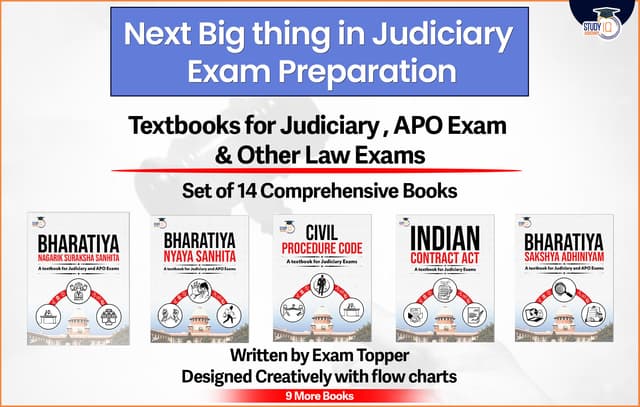Table of Contents
Why in the news?
The Supreme Court in the judgment of K. Umadevi v. Government of Tamil Nadu has recently held that maternity leave is a constitutional right and overruled the Madras High Court Judgment.
Supreme Court’s Decision: Maternity Leave is a Constitutional Right
The Supreme Court recently handed down a landmark ruling that reshapes the landscape of women’s workplace rights. In this decision, the apex court overturned a Madras High Court judgment that had denied a government school teacher maternity leave for the birth of her third child. The key takeaway is that maternity leave is not merely a matter of fairness or social justice; it is a constitutional guarantee meant to protect the dignity and well-being of working women.
A bench comprising Justices Abhay S. Oka and Ujjal Bhuyan emphasised that maternity leave serves as a critical safety net by supporting both the physical and mental health of women. Their observation was clear as women increasingly form a significant part of the workforce, it is imperative that their rights are respected and their dignity upheld.
Maternity leave is fundamental in helping women recover from the physical demands of childbirth, in nurturing their newborns, and in preserving their work performance. The judges stressed that pregnancy is a profound experience that affects both the body and the mind, and therefore, adequate time for recovery and care is essential not just for the mother but also for the child.
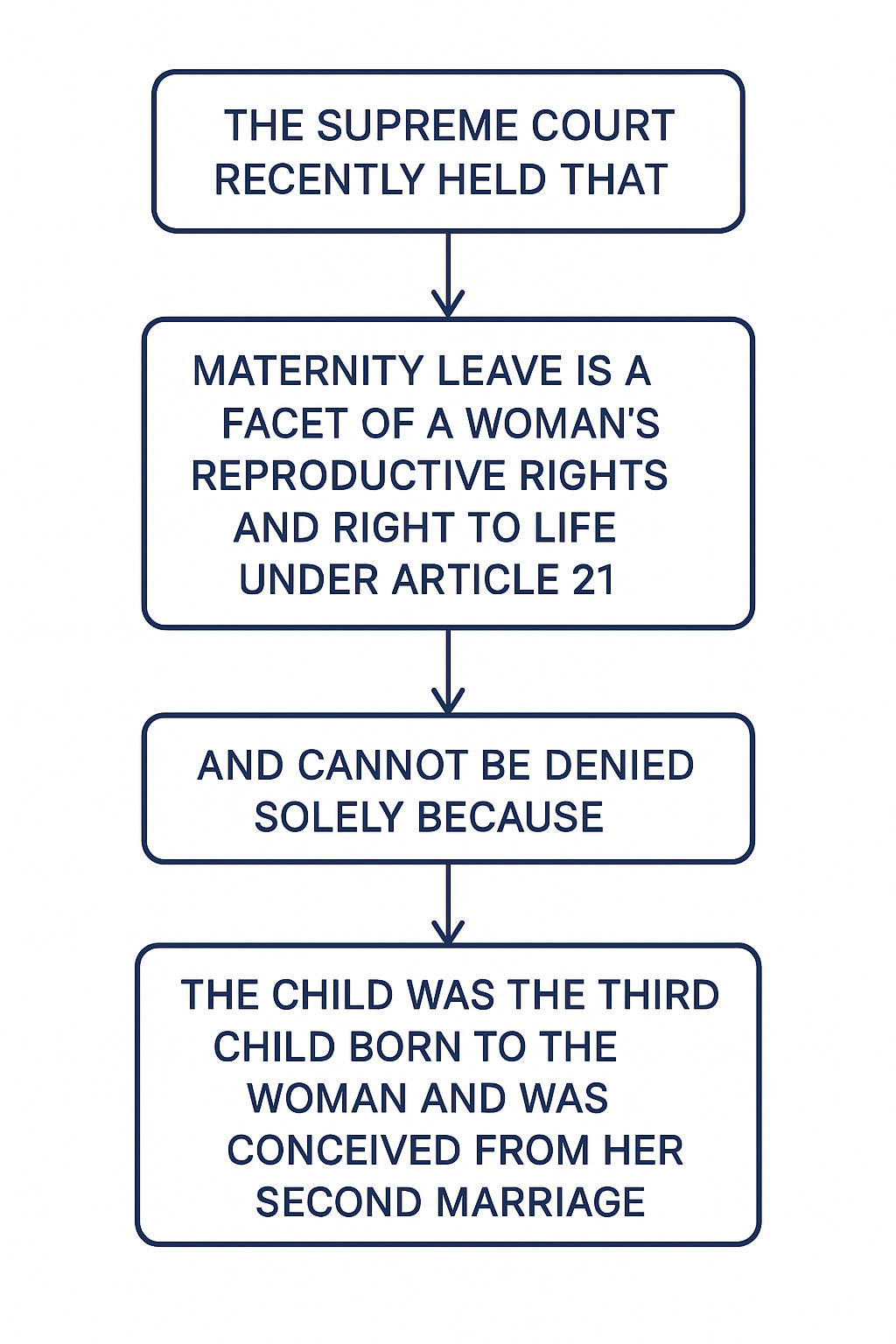
Previous Madras High Court Judgment on Right to Maternity Leave
Previously, the Madras High Court had denied the teacher’s leave on the basis of state policy in Tamil Nadu, which restricted maternity leave for the birth of a third child as part of a broader population control initiative. However, the Supreme Court ruled that such state policies must yield when they conflict with constitutional rights. The teacher, whose third child was born during her second marriage, was entitled to maternity leave under the constitutional guarantee of reproductive choice. This crucial detail underscored that personal circumstances and individual rights take precedence over rigid administrative policies.
Beyond the immediate context, the decision reinforces the broader principle that every woman has the right to make informed reproductive choices free from excessive state interference. The judges made it clear that denying access to reproductive healthcare or failing to accommodate the physical and emotional challenges of motherhood not only diminishes a woman’s ability to care for her child but also undermines her inherent dignity and autonomy. In other words, maternity benefits are not just workplace perks; they are integral to preserving the human dignity of women, a value that the Constitution proudly upholds.
In essence, this ruling is a monumental affirmation that all workplace policies must align with constitutional values, especially when it comes to protecting women’s health and their right to a dignified existence. It sets a precedent for future cases involving reproductive rights and workplace entitlements and sends a resounding message that women’s rights are fundamental, not negotiable.
Moving forward, this decision prompts further reflection on how legal frameworks interact with evolving social values. For anyone interested in the broader implications, consider how such interpretations of constitutional rights can influence reforms aimed at achieving gender equality in the workplace.
Also Read: Maternity Benefit Act, 1961
Court’s Observation on Maternity Leave
The Court explained that after a thorough examination of reproductive rights, it is clear that maternity benefits inherently fall within that realm, maternity leave being a critical element of these benefits. Consequently, the Court nullified the contested order and overturned the division bench’s ruling.
The judgment underscored that maternity leave is not an optional or secondary provision, but an essential part of maternity benefits. In today’s legal landscape, reproductive rights are intertwined with several core international human rights principles, including the right to health, privacy, equality, non-discrimination, and dignity. In light of this integrated approach, the Court rejected the previous view that framed maternity leave merely as a statutory right or as a privilege tied to service conditions, affirming instead its status as a fundamental right.
Justice Bhuyan, in his opinion, further clarified that although the appellant had two children from a previous relationship, those children were born before she began her service and are currently under the custody of her former partner. Her current pregnancy, which occurred during her ongoing marriage and employment, is treated as the first child for the purpose of entitlement to maternity benefits.
He acknowledged that while the state’s policy to control population growth through measures such as the two-child norm is a commendable objective, it does not conflict with and should indeed be reconciled with the goal of providing maternity benefits to women. Both aims can and should be aligned in a balanced, rational manner to serve broader social interests.
Also Read: Pradhan Mantri Matru Vandana Yojana (PMMVY)
Present Law as to Maternity Leave
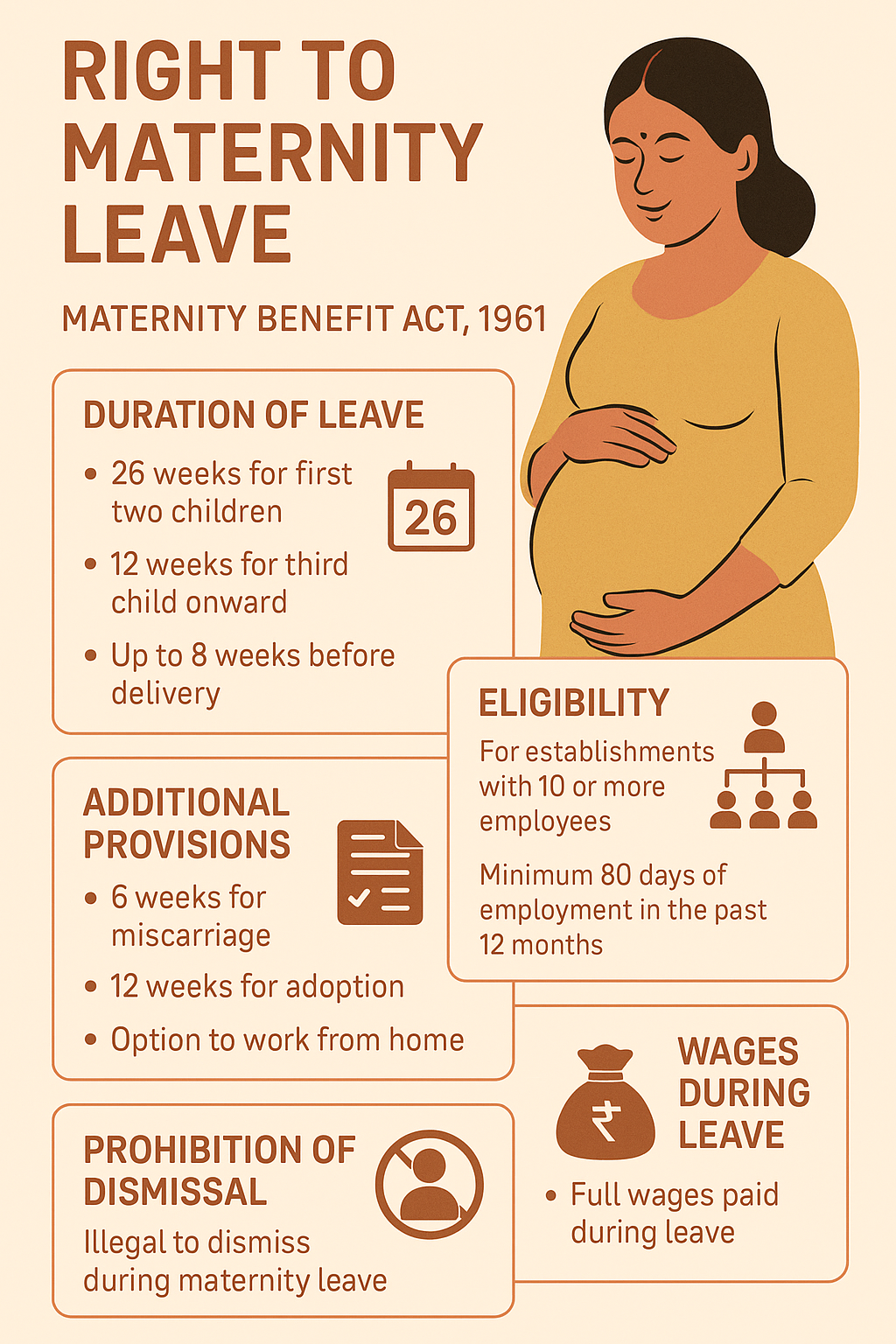
Previous Rulings Related to Maternity Leave
| Case Name | Court & Year | Key Ratio Decidendi |
| Deepika Singh v. Central Administrative Tribunal | Supreme Court, 2022 | Maternity leave cannot be denied solely because the woman has previously cared for her spouse’s children. The right to maternity leave is linked to reproductive autonomy under Article 21. |
| Dr Mrs Hema Vijay Menon v. State of Maharashtra
|
Bombay High Court, 2010 | Maternity leave must be granted to surrogate mothers, as the purpose of maternity benefits is to uphold dignity and well-being of both mother and child |
| Pooja Jignesh Doshi v. State of Maharashtra | Bombay High Court, 2017 | Denial of maternity leave for adoptive mothers violates Article 21, as motherhood extends beyond biological birth |
| Municipal Corporation of Delhi v. Female Workers (Muster Roll) | Supreme Court, 2000 | Maternity benefits must be extended to **contractual and temporary workers, ensuring equal protection under labor laws. |
| B. Shah v. Presiding Officer, Labour Court | Supreme Court, 1977 | Maternity benefits must be interpreted liberally to protect women’s health and employment security. |
| Neera Mathur v. LIC of India | Supreme Court, 1992 | Employers cannot impose discriminatory conditions that restrict maternity benefits, as it violates constitutional guarantees |
Conclusion
The Supreme Court’s landmark ruling on maternity leave strengthens the constitutional protection of women’s reproductive rights and workplace entitlements. By recognizing maternity leave as a fundamental right under Article 21, the Court has reaffirmed the dignity, autonomy, and equality of working women. The decision ensures that state policies cannot arbitrarily restrict maternity benefits, especially when they conflict with constitutional guarantees.
Beyond the immediate impact, this ruling sets a precedent for future legal interpretations of workplace rights and reproductive autonomy. It signals a broader shift toward gender-sensitive policymaking, ensuring that maternity leave is treated as a vital constitutional protection rather than a discretionary privilege.
Going forward, this judgment challenges employers and policymakers to adopt a more inclusive approach to maternity benefits, ensuring that legal frameworks evolve in harmony with constitutional values. It is a monumental step toward workplace equality and a strong affirmation that women’s rights are non-negotiable in a progressive legal system.

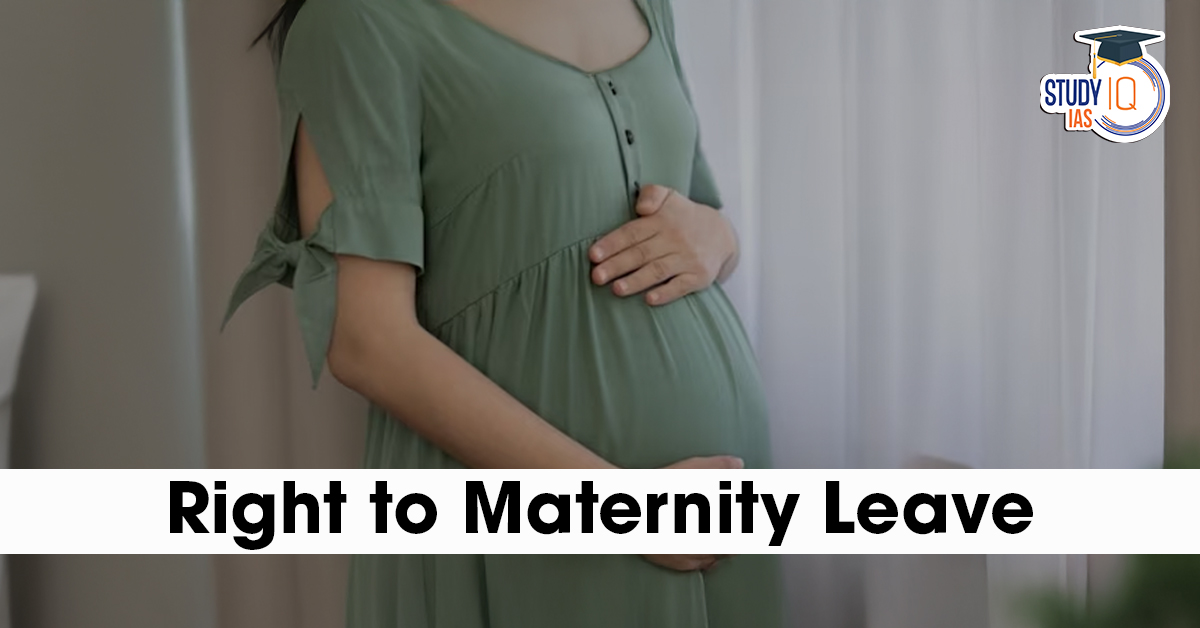
 Warring Couples Cannot Make Courts Their...
Warring Couples Cannot Make Courts Their...
 Tackling Child Trafficking in India: Leg...
Tackling Child Trafficking in India: Leg...
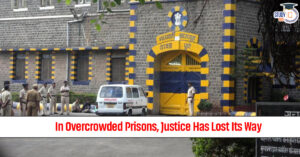 In Overcrowded Prisons, Justice Has Lost...
In Overcrowded Prisons, Justice Has Lost...






